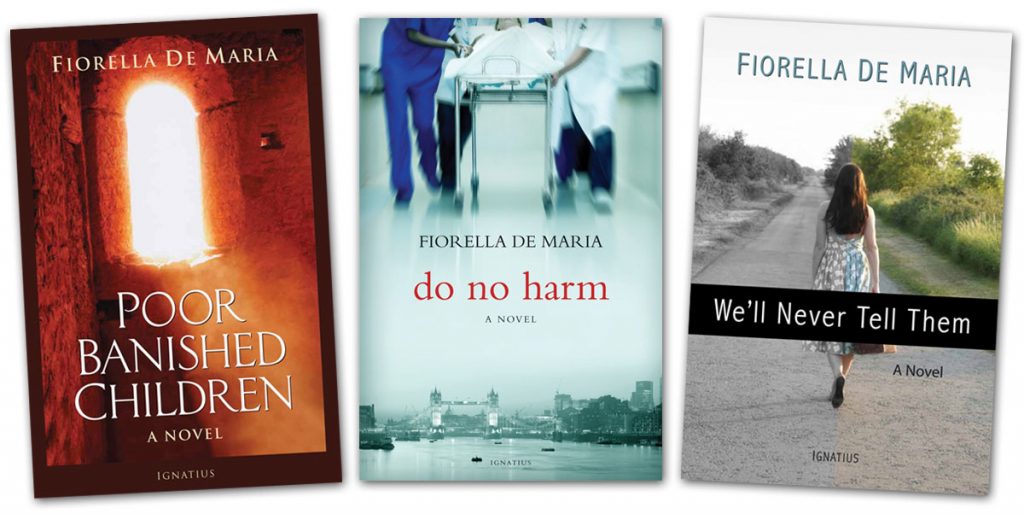
Humanum, a quarterly review from the John Paul II Institute, recently posted a perceptive review essay by Michalina Ratajczak of three novels by Fiorella De Maria. Titled “The Face of Human Dignity in the Novels of Fiorella de Maria”, the essay examines some of the common themes that unite these three novels: Poor Banished Children, Do No Harm, and We’ll Never Tell Them. Ratajczak writes:
And yet, for all their grand, overarching portrayals of historical events, De Maria’s novels are more personal than political, because they unfold largely through the eyes of their tightly-wound young female protagonists. These are women who fight to carve out a sense of their own separateness, their own space – both from deeply flawed institutional systems, as well as flawed interpersonal and familial dynamics. All three protagonists are operating under the curse of a traumatic childhood, where they were expressly unwanted and abused. All three protagonists are then “saved” by an older male father figure of a sort, saved from the realm of their chaotic mothers, dysfunctional families, or sadistic female friends, and inducted into the timeless and objective order of the cultivated masculine, that in turn is a refuge from the prevailing Darwinian culture in which the strongest exploit the weakest.






danny cullen
July 3, 2019 at 2:59 pm
There is art in those three books and I can not believe Ignatius does not concur. I have my thoughts about that- I will not speak of here. the novels speak of the human soul’s reliance on truth coming out of extreme suffering which in itself was a gift to the souls.